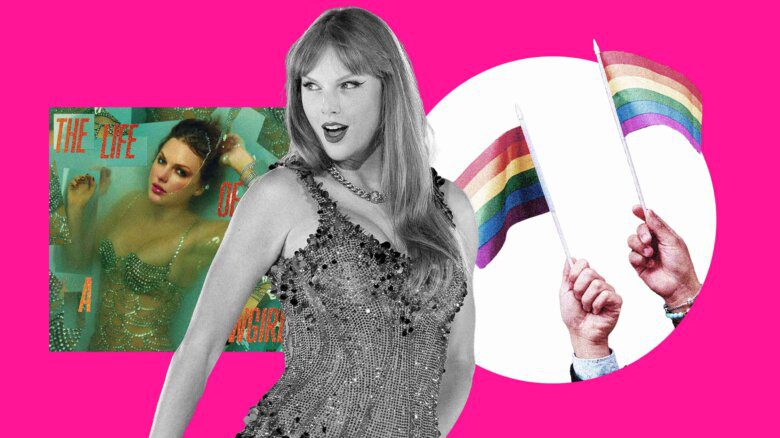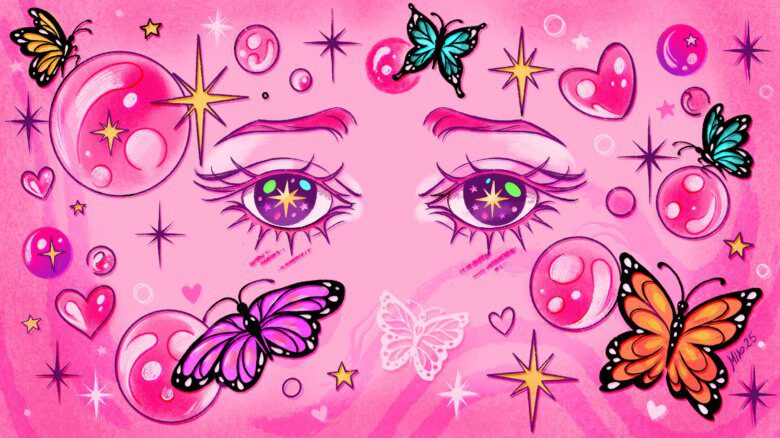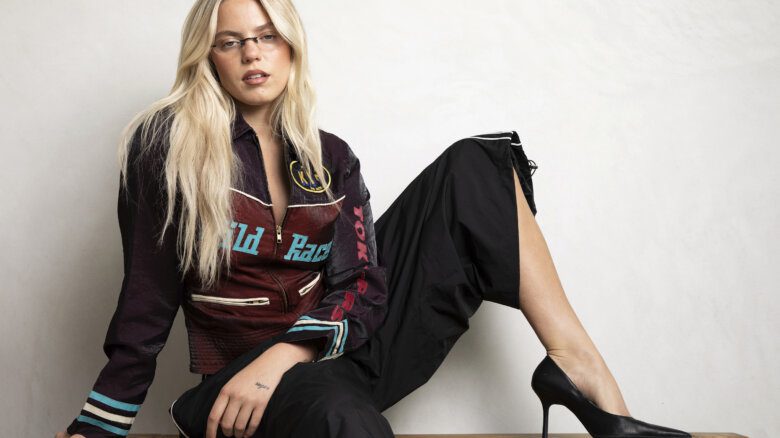With its vibrant, playful sound and joyfully smutty lyrics, the arrival of Siena Liggins’ debut album Ms. Out Tonight makes it feel like summer’s arrived early.
An early candidate for queer party album of the year, it’s easy to imagine songs like “thicc,” “Girlfriend” and “No Valet” shaking the walls of packed house parties, clubs and after hours spaces, which was no doubt exactly what Liggins had in mind.
“A lot of the songs I made with the idea of listening to them with other people,” she says in an interview over Zoom from a friend’s place in Brooklyn. “That’s also my favourite time to listen to music and, like, experience music. If I’m really enjoying music, I’m belting ‘Hit me baby one more time’ at the top of my lungs with a group of my friends.”
Pointing to Britney Spears is no accident. Though Liggins, who is 27, is a big fan of other independent pop artists (she cites Dee Gatti and Yung Baby Tate in particular; she and Tate having collaborated on “Dirty Girl”), it’s clear that her ultimate goal is occupying the same space as your mainstream pop favourites. The mainstream could certainly use some diversity, including a Black masculine-presenting performer who writes unapologetically for and about women she’s been romantically involved with.
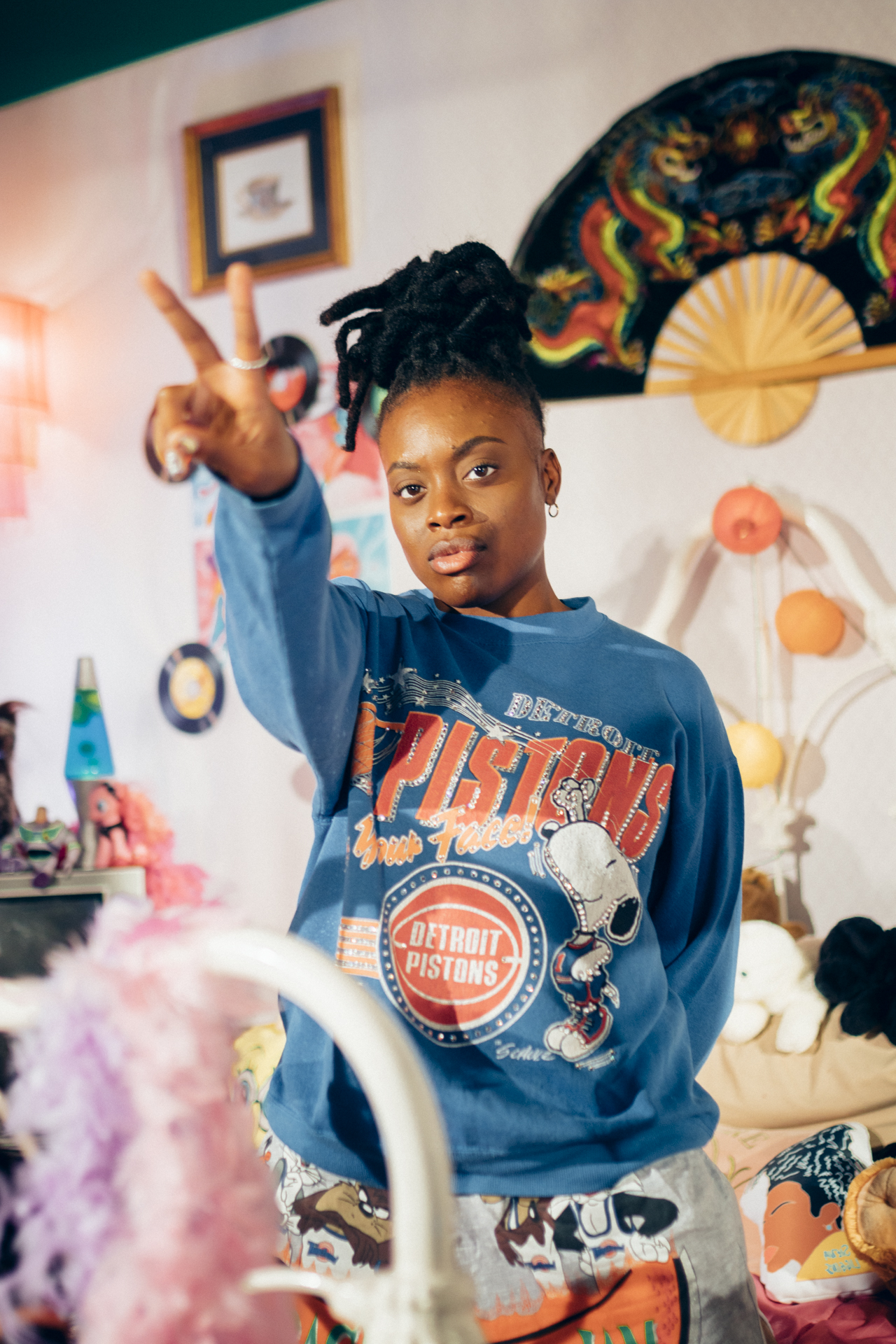
Credit: @thearteofprime–Victorian Prime
“I don’t fault the artists who are at the mainstream level,” she says. “White girls with blonde hair who can sing and dance and have very palatable, airy voices that are easy to remix are awesome. Big fan! Love it! But surely, there is a group of people out there who are hungry for more than that. Surely there is a group of people who are looking for themselves in someone like me, or someone not like me— someone like you, maybe!
“I think that there’s room for all of us, there’s a budget for all of us, there’s a market for all of us, so why not give it to them? If the only difference between me and insert pop star here is the machine, at that point the machine needs to take a look at itself.”
“There’s a lot of people who look like me and talk like me and dress like me. Yeah, I love Atlanta, it feels like the right place for me.”
Even if Liggins’ presence in the industry defies expectations, the music on Ms. Out Tonight itself delivers all the pop thrills she promises. The visual album is a similar rush to the senses, speeding through each of the album’s 12 tracks in 12 brisk minutes. Xtra asked Liggins about her music, her message and what it means to look “basic plus.”
You recently moved from Detroit to Atlanta, which is a huge hub for culture in general and for Black culture specifically. How do you find yourself fitting in as a queer newcomer?
I fit in great in Atlanta. It’s really, really cool because it’s a very Black city and there’s so much diversity amongst the demographics of Black people, so there’s a lot of first-generation Africans, a lot of Caribbean and Islanders. There’s a lot of people from Canada, and obviously there’s African-American Black people. There’s a lot of culture in Atlanta, and that was a big reason why I wanted to move there. There is a huge pipeline from Detroit to Atlanta. When I got here, I just felt very seen. There’s a lot of gay Black people here, and there’s a lot of people who look like me and talk like me and dress like me. Yeah, I love Atlanta, it feels like the right place for me.
Are there queer networks specifically within the industry that you’ve been able to tap into?
Yeah! There are. Of course, like most sects of any industry, women tend to come… well, not last, but not first. But there is a really huge gay scene; there’s a big ballroom scene in Atlanta.
You’ve talked in the past about wanting be perceived as “not just another queer artist.” What do you think are common conceptions of what a “queer artist” is and how do you feel like you’re trying to challenge that?
I think that a lot of times, when representation is on the table and when equality is on the table, people writing the narrative will try to write the story in a way that highlights groups of people who don’t get to shine all the time. But they often make the mistake of othering us. And it’s a fine line, right? There’s no perfect way to do it. I think that the best way to do it, though, is to let those people from those groups lead the conversation. I feel like I am more than just an amalgamation of a bunch of buzzwords like “queer” and “Black” and “androgynous” or “masculine-presenting.” Like, I am those things, yes! But also I make pop music. It’s not that deep.
And you’ve talked on Instagram about people classifying your music as R&B, even though it’s clearly pop music.
It’s frustrating. And not even just R&B, hip hop! People have called me a rapper! I mean, I love rap, but even if I wrote a rap, it would be a pop song. And it’s weird because when you hit the intersection of so many marginalized groups, you end up getting labelled as “alternative” or you end up becoming, like, a poster child for “others,” and that’s what I mean when I say it can become very othering.
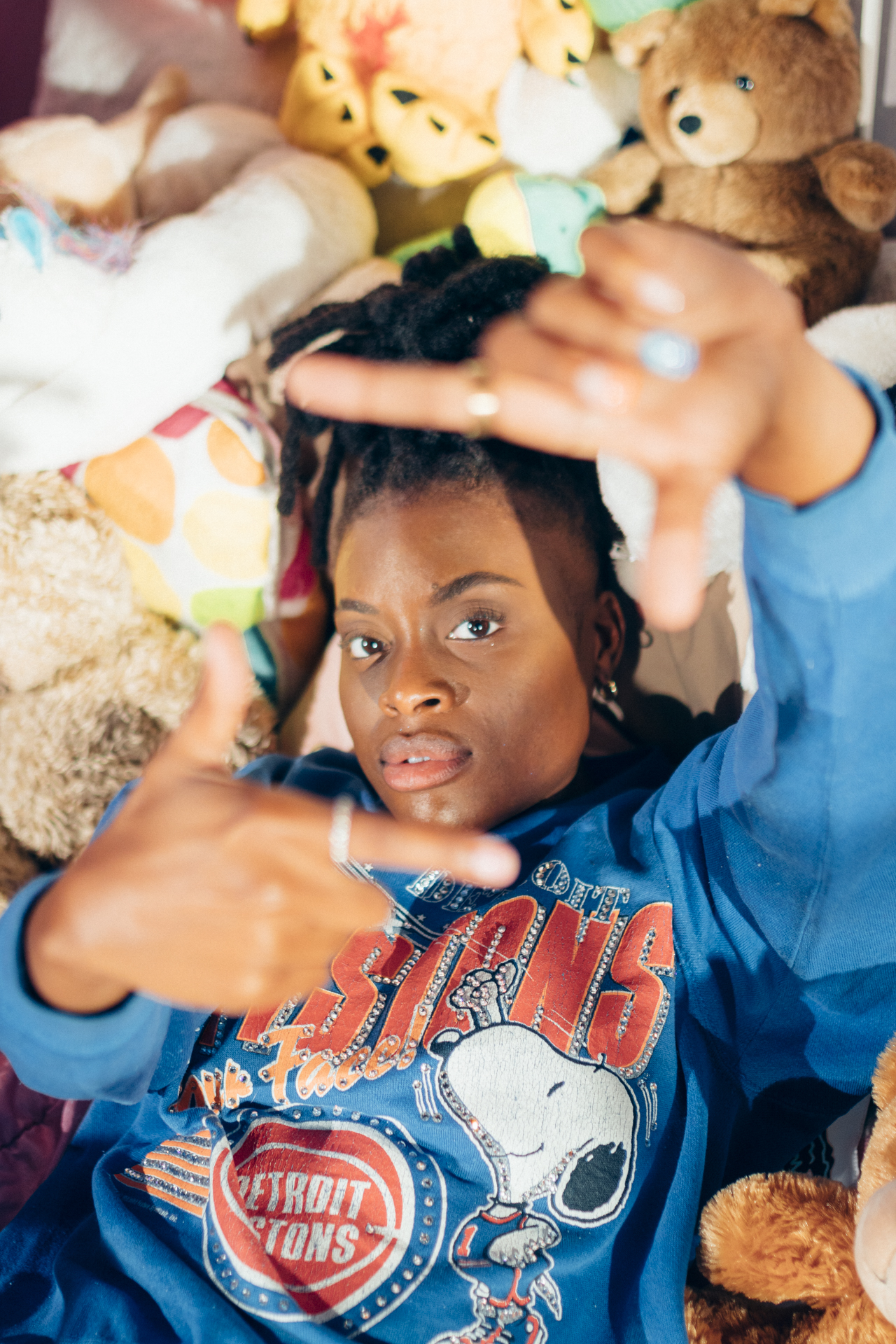
Credit: @thearteofprime–Victorian Prime
On the subject of not being pigeonholed, I noticed there’s a lot of musical variety across Ms. Out Tonight. Was it a conscious decision to really mix it up in terms of style and production sound?
That wasn’t a part of the strategy. I think that pop music has gotten to a place where there is so much fluidity amongst the genres that I could make a song that sounds hip hop but, like, if I’m talking about chicken nuggets and banana splits, you couldn’t put that next to a Nas track and be, like, “This is the greatest rap song!”
I look at artists like Doja Cat. When you listen to and look at Doja Cat and her trajectory, she is a pop star. She has massive global appeal and it’s because of how popular her music could become, because of how relatable and palatable it is for anyone of any background. I think that that’s one of the things that I enjoy about myself: I’m very blessed to have a voice and a vision. I guess it could sound more R&B today or it could sound like Britney Spears tomorrow or it could sound like whoever I want it to, really. That’s the cool thing about pop music.
Another striking thing is the vibrant, colourful look of the visual album and all your eclectic fashion choices. How would you describe what you’re trying to go for with your visual aesthetic?
My team was trying to figure out, “What is your aesthetic? We kinda see it, but what is it?” I was like, “I don’t wanna be basic, but I wanna be basic plus.” Like if you were to get the basic model of something, but then add, like, a sunroof or maybe some cheap, nicer rims, you know? And of course, everything is colourful and everything is very expressive and some of it is a bit obnoxious. Right now I’m wearing, like… it’s a Gucci bootleg. It’s a bootleg, it’s not real, it’s not Gucci, but it’s sweet and it’s one of one, I got it from a really fire designer at ThriftCon. That’s how I would describe it, basic plus.
You project a lot of confidence in your public image and in your interviews. Is that something that you’ve always had or have you had to build it up over time?
“If you can’t be exactly who you are, authentically and honestly and confidently, on some level you miss out on the parts of life that are probably the best for you.”
I definitely had to build it up. I think my dad told me at one point, “You gotta work on your confidence,” and that was really important for him. I went to predominantly white schools growing up. I’m thinking back on middle school; I didn’t feel confident in middle school when I was 11 because I felt very different and I felt very much like, “I don’t know who here I can really relate to.” From there, when I found music and when I found writing was my thing, it was a way to escape. I could be whoever I wanted to be, I could be as confident as I wanted to be on a track, because at that point in time no one was asking me to perform it, and so it very much was a way for me to get away from myself. And it really wasn’t until people started listening that I started to believe that, because they were echoing what they were hearing.
Are you hoping that by putting that more confident version of yourself out there you’re going to inspire people to come out of their own shells?
One thousand percent. I think that that’s the point of this album. If you can’t be exactly who you are, authentically and honestly and confidently, on some level you miss out on the parts of life that are probably the best for you. That’s one of the things I really wanted to capture with this album. I am so many things, and some of them work great together and some of them clash and some of them probably feel very provocative when some people might see them and other things might feel kitschy and campy, but it’s who I am, you know? The minute that I decided to just be myself and just stop apologizing for who I was, a lot more opened up for me, it felt a lot better. And on top of that, I found other people who were like me, who could affirm me, and they were like, “Yes! I see you! I want that!” And I’m like, “You can have it! Go get it!”
This interview has been edited for length and clarity.
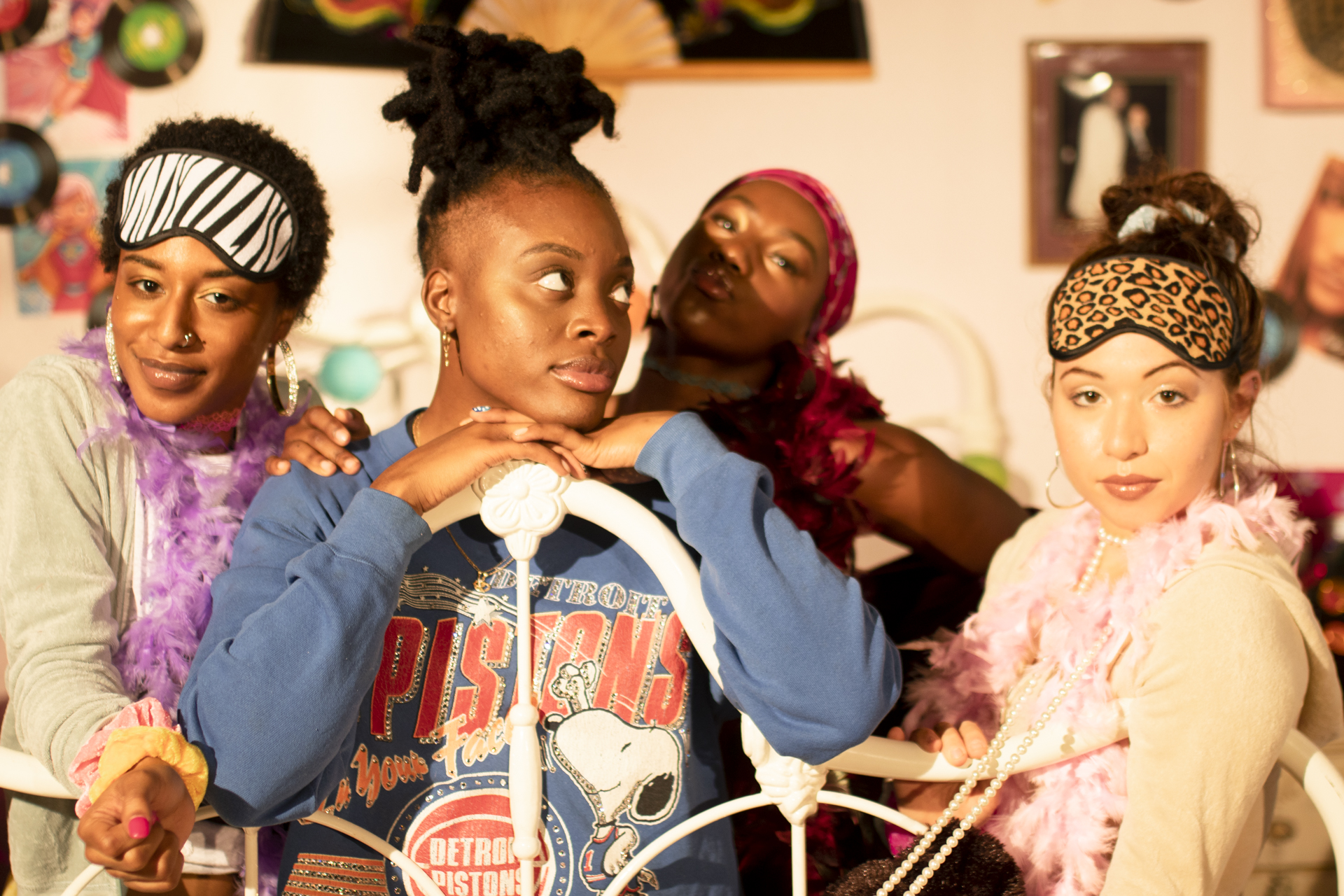
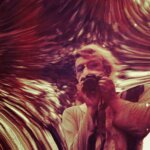
 Why you can trust Xtra
Why you can trust Xtra